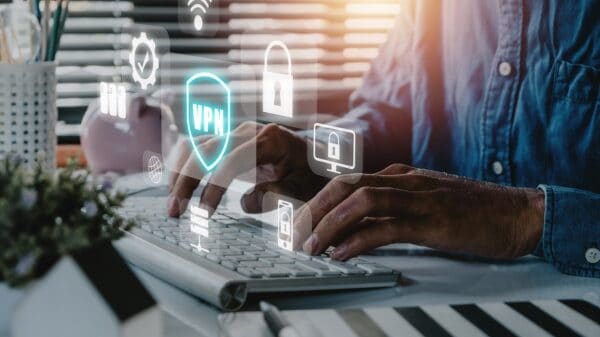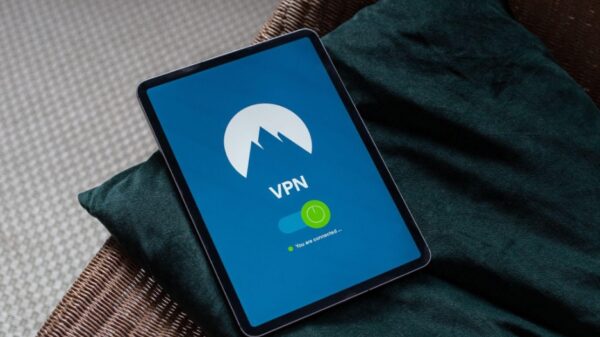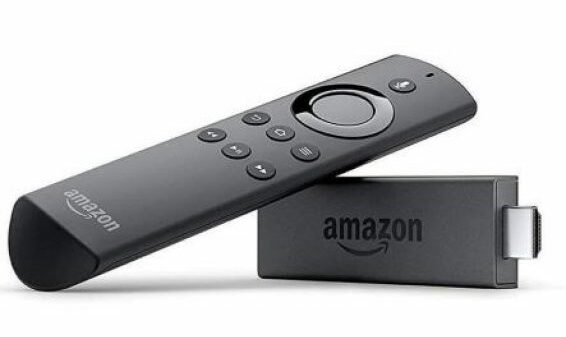VPN is a tool that is almost as common as your mouse or keyboard nowadays. The complete form of VPN is ‘Virtual Private Network.’ These work by creating a private network over the public network we use on our phones and computers. The top VPN services protect your valuable information from prying eyes by doing this.
Regardless of getting your encrypted data protection from hackers and third parties, many of us simply have too many doubts about VPNs and their functionalities. These misconceptions may range from relatively harmless to extremely risky. As there are a vast number of VPN software in the market, it is natural to get skeptical. However, many VPN service providers make their products secure and user-friendly to stay on top of the competition, allowing device compatibility and reliable customer service. In addition, some VPNs allow unlimited devices, while others only let you connect up to three.
In this article, let’s take a quick look at 10 common myths and misconceptions about VPN to discover why you shouldn’t be bothered.
Myth 1: VPN= illegal!

One of the many plausible reasons why some of us shy away from using VPN is because we could be highly dubious about its authenticity. To some of us, using VPN is like living under the radar or doing something unlawful, and it feels wrong. And this myth reflects on the lack of data security awareness, with as less as 35% of the entire internet users worldwide!
Now, the answer to this question vastly differs from one territorial border to another. While some counties have restricted VPN uses like China or Russia, the rest of the countries support legal access to any VPN services, as long as you use VPN solely for your data security and anonymity.
Using VPN is illegal for criminal acts or highly punishable offenses like breaking copyright laws, piracy, visiting strictly banned websites, or accessing Dark Web marketplaces. As long as you use VPN for all the good causes, you are good to go!
Myth 2: Free VPN, you say?
We get it. If we get our job done with a free service, why opt for a paid option? But ask yourself this, is getting a free VPN really worth it when it does the exact thing it’s supposed to protect you from?
Yes, you read it right! Above all, the VPN service providers are companies like everything else, and their main goal is to make a profit. In a paid service, you are paying for that profit.
However, providers make a profit in a free service by selling your data to third-party advertisers. Besides, it’s not simply about the shared gains. If you heard of VPNs showing down your internet, that is more likely to be free VPNs. It also comes with constant ad pop-ups, restricted streaming, and limited data-per-usage, while the overall cyber safety might still be questionable. However, most premium VPN service providers offer great package deals that include Unlimited Bandwidth, bypassing any geo-blocks, reducing ISP throttling, and more.
Myth 3: VPN is NOT for novice users
You are probably looking at this page on a smartphone or a computer screen. Think of it for a moment. The electrons are running around through the wires, pictures coming up on screens; it almost seems like… magic! Yet here you are, using it.
Yes, the inner workings of VPNs can be difficult to understand. These are designed by some of the most brilliant software engineers and are some of the most sophisticated techs out there. However, they are also extremely user-friendly! You don’t need to know how it works to use it. Just clicking a few buttons can get you one of the premium VPNs out there.
Myth 4: VPN is for novice users; TOR is the way to go!
TOR is short for “The Onion Router,” which is free software that masks your identity by running your internet traffic through a series of computers. This makes you anonymous in terms of your IP address. However, your IP is not the only vulnerable thing.
While your IP is indeed masked, your data is still out there. Any hacker worth their salt can still read your information because TOR does not encrypt it (which VPNs do!). Besides, TOR also slows your internet down to a crawl, so much that you would probably break your router out of frustration before your page loads.
Myth 5: VPN makes you invincible
We may not care about sharing personal information all over the internet (even though we definitely should). Still, while logging into the bank account or just working on classified data, we are much more conscious for obvious reasons. VPN can give you security and added peace of mind with lightning-fast speed and top-notch encryption.
However, if you might think that VPN is your one-stop solution to all internet hazards, the Night’s Watch of the digital age, you would be wrong.
Yes, VPNs are extremely powerful online security tools. However, they only protect you from unsafe networks. For example, if you are putting your password in some untrustworthy site or the file you just downloaded contains viruses, your VPN can do nothing to protect you. However, the best VPN service providers still work as an essential safety measure against hackers and potential information leaks.
Myth 6: All VPNs are equal
This is untrue because the top VPN services are more equal than others. Not only do they have stunning usability, but they also have bulletproof coding and fast servers, which make your online VPN connect 100% secure and buttery smooth.
How do you know which ones you should buy then? The best torrenting VPN service providers will have a no-logs policy, ensure that you always get good internet speed, and have a user-friendly interface. Some of them will even allow protections to multiple devices at a time. You can easily find VPNs like this online if you know where to look.
Myth 7: VPN causes internet LAG
The worst thing that can happen to you when you’re online is network lag. Your stream starts to buffer, your game gets laggy, and you feel like breaking things. Many of us believe the reason for this is using a VPN. This, however, is not always true.
While many overcrowded and low-capacity VPN servers would slow you down, the best VPN service providers ensure that you get what you pay for, not because they like your smile but because they need to stay alive in the competition.
Myth 8: I am an open book! VPN is not for me

You might feel like the internet poses no threat to you because you’re doing nothing illegal. I get your point. After all, if you are not doing anything questionable or suspicious online, why do you need a VPN? It’s unnecessary, right?
Cyber security and privacy concerns and awareness- both are on the rise, and internet censorship has been going big in most developed countries.
That is where you might be mistaken. The internet poses many hazards to you, even if you’re not doing anything shady. These threats to your privacy can be subtle, like data mining and targeted ads. To know more, you can watch this TED talk to get a better idea about the threats of the internet.
So precisely, cyber security and privacy concerns and awareness- both are on the rise, and internet censorship has now been going big in most countries. And regardless of even stronger surveillance, using VPN is never irrelevant nor unnecessary for any frequent internet user.
Myth 9: VPN uses more data
You might think that, since VPN is an extra layer of ‘filter’ for your incoming and outgoing connections, it consumes more data than it usually would with a direct connection. But, again, we suppose you might be wrong.
Think of VPN as a screen protector on your phone. Does the touchscreen get harder to use with a screen protector, or does it merely save it from unwanted cracks and scratches? When you connect VPN online, it simply tethers you to its secure online server and allows you to browse the web, download files, and stream content through that connection. As a result, the best secure VPNs would never consume unnecessary bandwidth from your Wi-Fi or cellular data plan. Instead, they might have features to compress the encrypted data, saving your precious bandwidth.
Myth 10: I don’t need a VPN on my phone
You might think of the phone as an inferior, dwarfed cousin of the desktop PC or the laptop, but is it really? Have you paid close attention to the specs of modern smartphones, with their octa-core processors and oodles of RAM? Why should they be treated differently from a PC with this much computing power inside?
Keep in mind that we use our phones to place calls anymore and browse the web, make online transactions, or even work on sensitive business documents that will land you in a lot of trouble if they fall into the wrong hands. Every time you connect your phone to a public Wi-Fi network, you’re risking the security of these documents, transactions, and your personal information. Your data can be stolen, or your phone might be infected by malware. The top VPN services provide security for your information when you’re in a public network.
Some common Frequently Asked Questions about VPN

1. How do I choose a VPN provider?
Like we previously talked about, we do not generally recommend using a free VPN. However, many premium VPN providers have blazing-fast speeds, super quick connectivity, unlimited bandwidth, trusted server facilities, availability on every device or operating system, and more. So before the right VPN service, make sure to look into these features, along with their pricing model and customer service.
2. Is VPN safe for online banking?
There are only two answers for this- yes and always, especially when using public Wi-Fi. With rock-solid encryption standards, VPN allows you to access the internet through an encrypted tunnel instead of connecting straight through public Wi-Fi, protecting your banking data from connection hijacking, hacking, and identity theft.
3. Do VPNs log my information?
The moment you connect to a VPN, countless pieces of your personal information start fleeting around the internet’s open space, including your IP address, internet connection logs, browsing history, etc. Even though most VPN services promote their services as “logless,” “no-logs,” or “zero-log VPN,” the truth is all VPNs log your information. So, it’s not important whether your VPN logs your data or not. Instead, it is a matter of what VPNs and how long VPN logs in your information. So instead of falling for the “no-log” catchphrase, consider going through your desired VPN service’s Terms of Service and Service Policy before you make a subscription for yourself.
4. Can Google block my VPN?
Google constantly uses your data to track your online presence and traffic behavior. As VPN is used as a shield to protect your identity online, it’s hard for Google to recognize your online whereabouts. This is why VPN users encounter many CAPCHAs whenever they try to search anything on Google through a VPN. In addition, Google sometimes blocks the VPN only when it sees suspicious requests to their servers from one particular IP.
Are looking for more VPN-related questions with answers then you may visit here for more insightful VPN information.
Final Thoughts
The digital age is also confusing, especially for those who are not tech-savvy. The misconceptions around internet safety and VPN can make it seem even more confusing. However, once you take a closer look at these misconceptions, you find out that they’re exactly that, misconceptions and nothing more. VPNs are some of the most sophisticated tech available that provide you protection against the dangers of the internet. It is your best bet to learn more about the best VPN service providers and buy a VPN to protect yourself and your data from online threats.
An expert Digital Marketing Specialist having 6+ years of extensive experience in different digital marketing channels and advertising industry. I am passionate to help B2B companies achieve organic growth and acquire new customers through the data-driven content marketing. Web design is another passion for sure.

























































































































































































